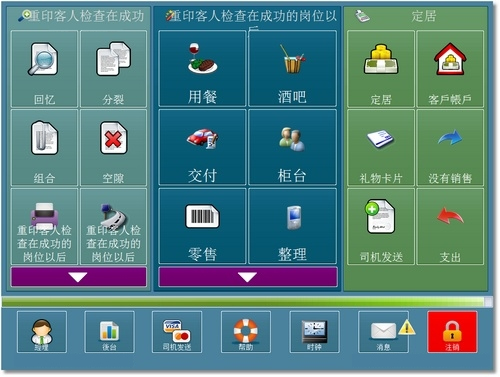The following example details the steps required in order to use Chinese characters for the screen interface, prep tickets and customer receipts on a pos station equipped with a Star TSP100 thermal printer. The Star TSP100 includes internal Chinese character set.
Note that many printers do not contain internal Chinese characters by default and must be special ordered. AmigoPOS uses internal printer fonts to achieve maximum printing speed and quality, in contrast to many other pos applications that use Windows drivers to print Chinese characters, resulting in greatly reduced (20-50 times) print speed and "fuzzy" characters due to the fact that Windows printer drivers must first convert the printout to a graphic before printing.
I. Configure Windows to use Chinese characters
MS Windows must be configured to use Chinese characters. Open the Windows Control Panel and click on the Regional and Language Options applet. Select the 'Advanced' tab and choose Chinese from the drop-down list. Click OK and reboot the PC.
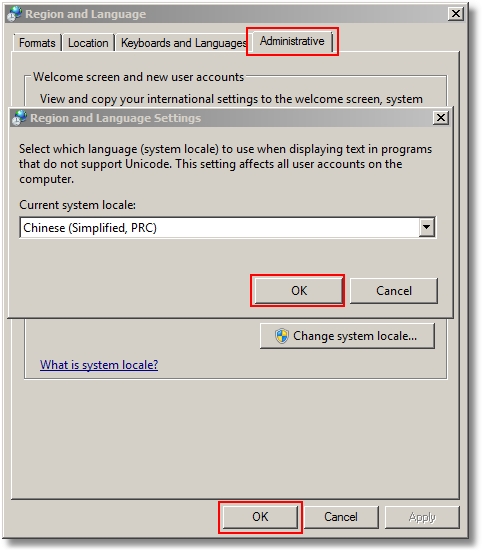
II. Configure the printer to use Chinese characters
After installing the Start TSP100, open the MS Windows Devices and Printers folder, right click on the receipt printer and click 'Properties'. Select the TSP Config tab and click the Launch Configuration Application button. Select the General Settings tab and choose Chinese from the Character Encoding drop-down list. Click the Apply Changes button followed by the Close button.
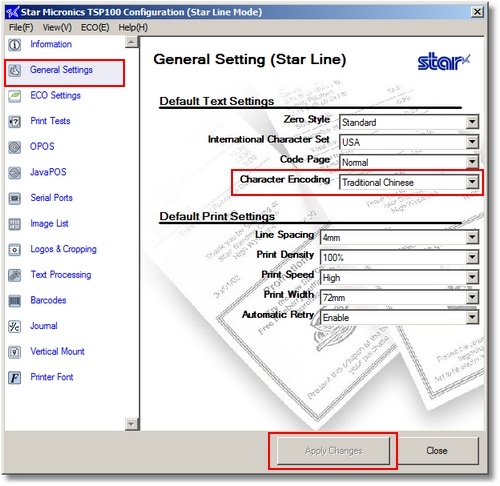
III. Configure AmigoPOS to use Chinese characters
In AmigoPOS Back Office, select Settings | Translations. Choose Chinese from the drop-down list. Note that any Chinese phrase can be translated by the user; the equivalent English phrase is shown in the left column. Restart AmigoPOS.

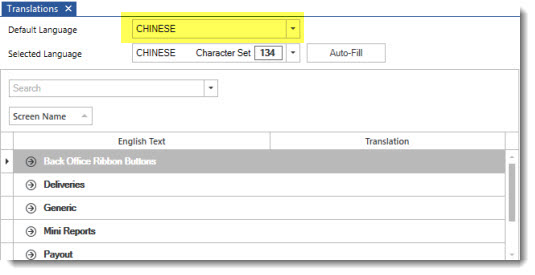
IV. Configure AmigoPOS receipt printer settings
In AmigoPOS Back Office, select Settings | Peripherals. Select Star Line mode from the drop-down list next to the Printer Type.
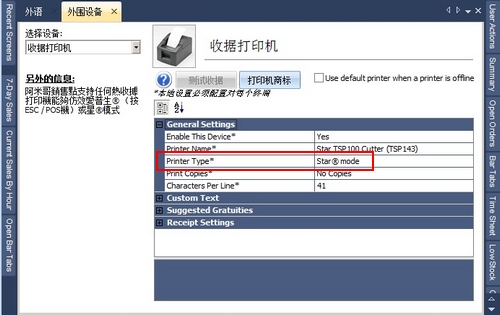
V. Customize the AmigoPOS user interface
All program captions and text can be customized to suit your needs by modifying the text in AmigoPOS Back Office, select Settings | Translations. Note that the default translations are translated by computer and may contain errors.
